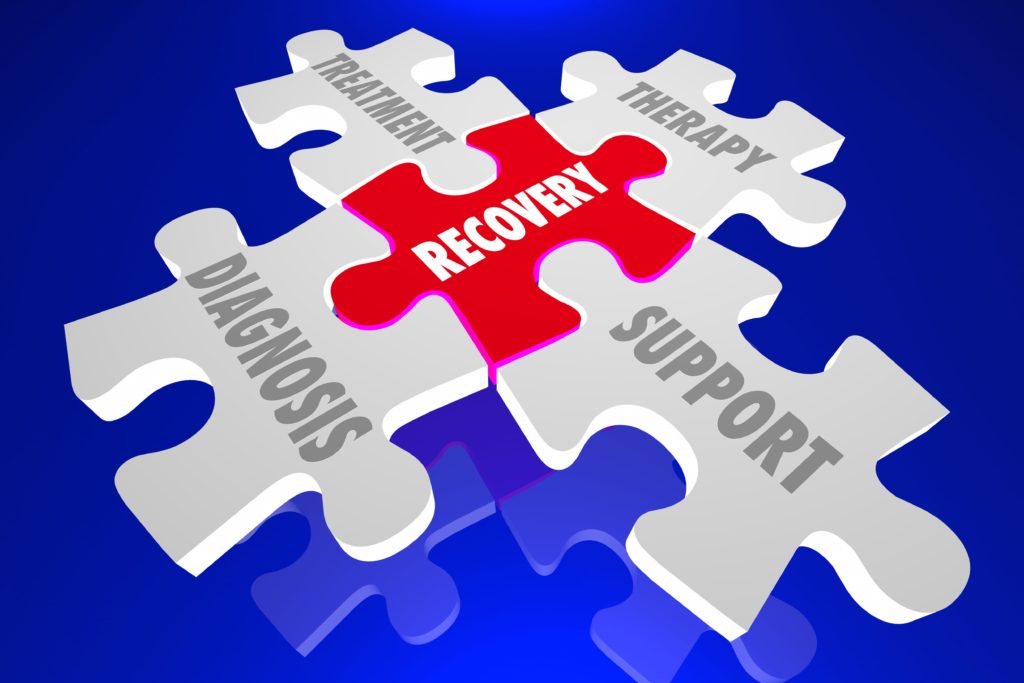Despite what some might think, addiction doesn’t happen overnight. In fact, addiction and the development of an addiction happen gradually over time as the brain is altered and reprogrammed to think that it needs that substance or substances in order to function correctly. While the overall process of addiction is universally the same, the length of time a person spends in the various stages of addiction can differ based on a variety of variables including the person and the substance they are abusing.
In this blog, we will discuss in detail the various stages of addiction and some of the characteristics of each one. We will also discuss treatment options for someone who may be suffering from addiction, including detox and how it fits into the overall recovery process.
What Is Addiction and Why Does It Occur?
 Addiction is a chronic disease much in the same way that asthma is. While asthma largely affects the lungs, addiction is a disease of the brain. Specifically, addiction affects the parts of the brain that are responsible for motivation, pleasure, and memory. As we touched on in the introduction, just like any other chronic disease, addiction doesn’t just simply pop up overnight and for no reason. The brain has to experience and realize that it likes a substance or substances first before it can continue to crave it and need more of it.
Addiction is a chronic disease much in the same way that asthma is. While asthma largely affects the lungs, addiction is a disease of the brain. Specifically, addiction affects the parts of the brain that are responsible for motivation, pleasure, and memory. As we touched on in the introduction, just like any other chronic disease, addiction doesn’t just simply pop up overnight and for no reason. The brain has to experience and realize that it likes a substance or substances first before it can continue to crave it and need more of it.
Over time, as the substance or substances get used more and more, the overall chemical makeup of the brain will begin to change. This change in the chemical makeup can not only lead to addiction but it can also cause other health issues to arise such as physical ailments and even mental health issues.
Why Do Some People Become Addicted and Others Don’t?
Thanks to advancements in modern medicine there are actually ways for doctors to “predict” the development of certain ailments, giving them a head start for treatment. Unfortunately, that is not the case when it comes to addiction. While there is no way to predict whether or not someone will develop an addiction, there are certain risk factors that can make a person more susceptible to developing a substance abuse problem or even addiction.
Age
While using and abusing illicit substances at any age can lead to addiction, doing so at a younger age increases that risk. In our teenage and early adult years, our brains and bodies are still developing. As a result, introducing things like drugs and alcohol to our brains at a young age can increase the chances that an addiction will develop.
Genes
If addiction runs in your family it is not a guarantee that you, in turn, will end up battling addiction. That being said, people who have addiction run in their families are far more likely to end up suffering from addiction themselves than those who don’t.
Environment
The environment in which a person is raised in plays a large role in determining the person that they will become later in life. For example, if a child grows up in an environment where drugs and/or alcohol are always around and being used, that child is far more likely to end up using drugs or alcohol when they get older because they were around it so much when they were a kid.
What Are the Different Stages of Addiction?
 While everyone handles and goes through the addiction process differently, the pattern in which it plays out is the same. These are known as the stages of addiction. The stages are:
While everyone handles and goes through the addiction process differently, the pattern in which it plays out is the same. These are known as the stages of addiction. The stages are:
- Initial Use/Experimentation
- Recreational/Social Use
- Abuse
- Dependency and Addiction
Initial Use/Experimentation
It might not seem like it at the time, but addiction can actually begin the second you try a substance of abuse for the first time. You aren’t going to become a full-blown addict after that first sip of beer or that first pill, and just because you try something once doesn’t mean you will automatically become an addict either. It can, however, certainly put the wheels in motion. When you try a substance for the first time it is called the initial use or experimentation stage. For many people, this initial use takes place in their younger years, usually in high school or college.
Trying or experimenting with illicit substances can happen for any number of reasons. Some people might just be curious about what it would feel like to be on a certain substance. Others might succumb to peer pressure and think they have to try something to fit in, even if they don’t necessarily want to.
During this first stage, you won’t typically experience any sort of craving yet. After all, the brain is just discovering what the substance is and might not even be sure if it likes it yet. If the brain does decide it likes it though, you might find yourself starting to anticipate and think about when you might be able to use it again.
Social/Recreational Use
If, after trying the substance for the first time during that initial use/experimentation stage, you decide that you like it, the next step will be to start using it more often but still not regularly. This is the social or recreational use stage. It is at this point that your drug or alcohol use can go one of two ways. Either you continue to stay in this stage and your substance use never really gets beyond this point, or you will progress from here to the next stage which can ultimately lead to abuse and addiction.
During this recreational use stage, you will likely start to become more conscious of what the substance or substances are doing to you, both while you are using it and after you have stopped using it. However, it is still early enough that you likely won’t think about what this could all potentially lead to down the line.
Using illicit substances socially or recreationally can mean a number of different things. For some people, it simply means that they are taking a drug that they are not medically prescribed or in ways other than directed. For others, it can mean that they are only using the said illicit substance in a social setting when others are around and are not doing it alone or by themselves.
Abuse
The transition from the recreational or social use stage to the abuse stage can sometimes be so quick that you or others around you might not even realize it happened. It is also at this point that drug or alcohol use is officially considered to be a problem.
When the abuse stage has been entered it means that your substance use has reached a point where it is directly affecting your life in a negative way. At this stage, you are likely choosing substance use over responsibilities and obligations such as school, work, family, or other commitments. It’s also at this point when the cravings kick in, both physically and psychologically. Withdrawal symptoms also begin to appear including irritability, fatigue, and depression. Finally, your tolerance levels will continue to increase, meaning you will start needing more of the substance or substances in order to reach your desired effect.
Dependency and Addiction
After you have abused the substance or substances for long enough, your brain and body will reach a point where it is 100% dependent on the substance to be able to function. It is at this point that the addiction has come to a head.
When a person suffers from addiction, they often do so knowing that whatever they are addicted to is bad for them but they can no longer stop on their own or they simply choose not to even try. If an attempt to seek treatment hasn’t already been made prior to this point, it is crucial that it is done at this time.
What Can I Do If I Am Suffering From Addiction?
 Regardless of the stage that you or a loved one might find themselves in, it is important to remember that it is never too late to get help.
Regardless of the stage that you or a loved one might find themselves in, it is important to remember that it is never too late to get help.
The first step on the road to recovery is to enter into a detox program. Detoxing is done so that the body and brain can rid itself of all harmful substances and begin the healing process. Due to the nature of detox and the side effects associated with the process, it is crucial that it be done under the care and supervision of trained medical professionals. This can be done at either a local medical facility, a treatment center that also offers detox services, or even a dedicated detox center like Magnolia City Detox. Attempting to self-detox can be incredibly dangerous and life-threatening.
Once detox has been completed then treatment can begin in either an inpatient or outpatient program.
Are You Suffering From the Stages of Addiction?
At Magnolia City Detox we understand that while detoxing is just one of the steps on the road to recovery that it is the first and arguably the most crucial step. Without first going through the detox process you can not truly begin to recover. To learn more about the detox programs that we offer, contact us today.

















